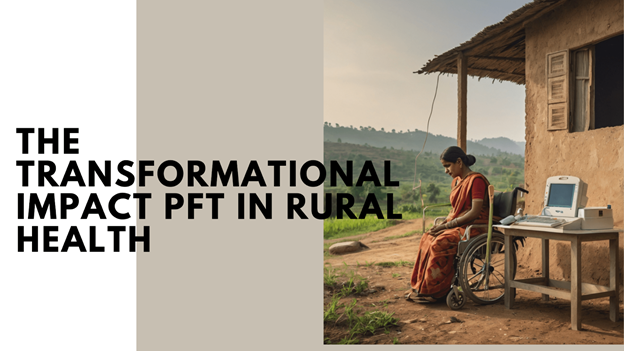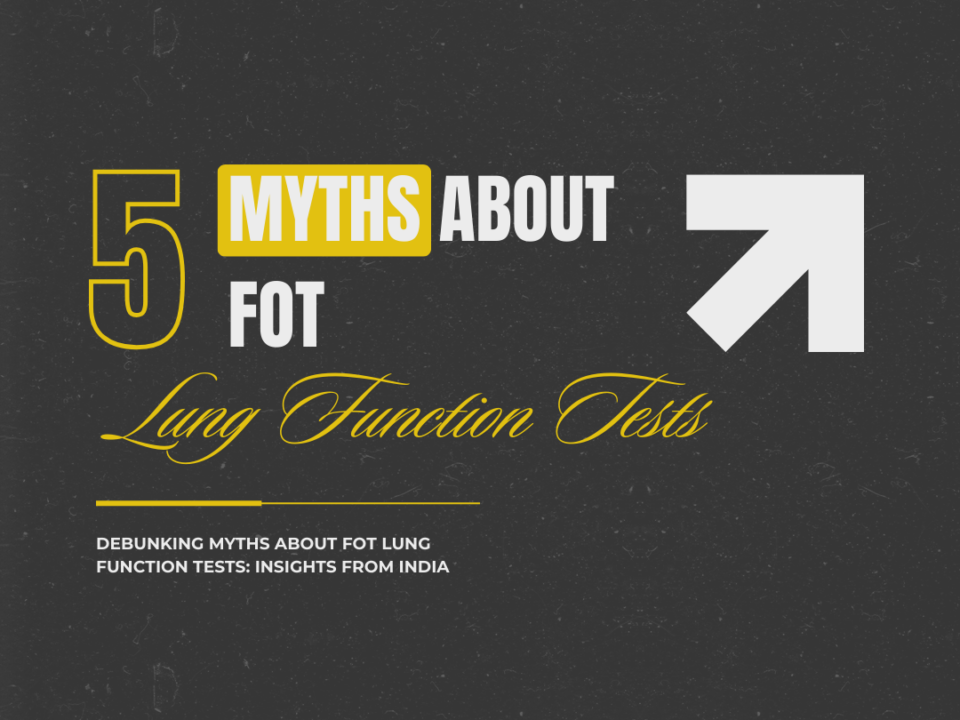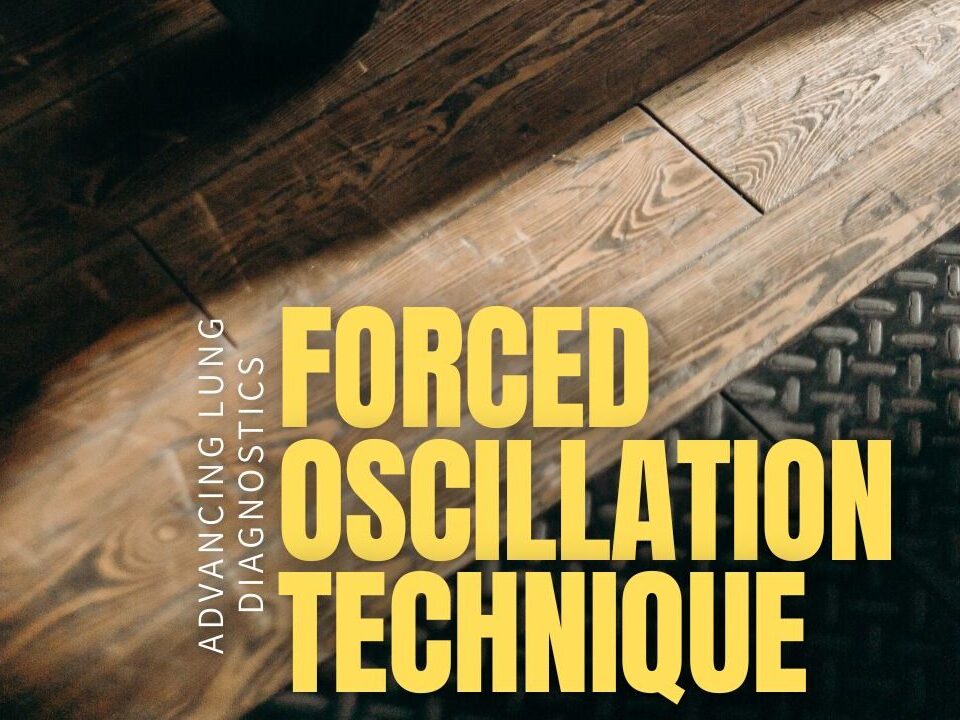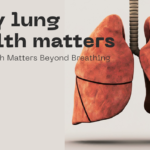
Why Lung Health Matters
September 6, 2024
5 Tips for Managing Lung Disease in the Winter
September 12, 2024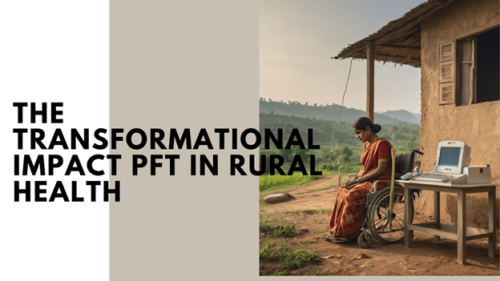
Point of Care Pulmonary Function Testing (PFT) has become a ray of hope in India's vast and diverse geography, where rural areas are generally distinguished by their restricted access to healthcare. For the millions of people who have historically been neglected by the healthcare system, this ground-breaking method of respiratory oscillometry is a lifesaver as well as a medical breakthrough.
Understanding the Rural Healthcare Challenge
The background of rural healthcare in India must be understood before exploring the advantages of Point of Care PFT. Given that more than 65% of Indians live in rural areas, there are numerous difficulties.
There aren't many medical facilities, and specialized services like pulmonology are even more uncommon. The high frequency of misdiagnosed and untreated lung disorders is caused by this scarcity, which is exacerbated by a lack of knowledge and instruction on respiratory health.
The Benefits of Point-of-Care PFT in Rural Health
Under these circumstances, Point of Care PFT is revolutionary. When pulmonary function tests are conducted at the time and location of patient treatment, as opposed to in a central, far-off laboratory, it refers to the usage of portable devices. For several reasons, this technology is especially well-suited to the rural healthcare environment in India.
- Availability
Point of Care PFT's capacity to work across regional boundaries is one of its biggest advantages. Patients in isolated areas can have portable gadgets delivered right to them, saving time and frequently making it unnecessary to go to larger cities. In a nation where access to healthcare can be severely hampered by infrastructure and transportation, this accessibility is essential.
- Early diagnosis and treatment
In rural India, chronic respiratory conditions like asthma and COPD are common and are frequently made worse by things like smoking, hazardous jobs, and poor air quality. The crucial early detection of these disorders is made possible by Point of Care PFT. Timely care following an early diagnosis can improve results and, in many circumstances, delay the progression of the disease.
- Empowering Primary Care Physicians
Primary care physicians are frequently the first and only people that patients in rural India can turn to when they have health issues. With the aid of Point of Care PFT, these healthcare professionals may evaluate lung function right away. This empowerment raises the standard of care provided at the community level and facilitates the making of more informed clinical decisions.
- Education and awareness
Point of Care PFT's existence in rural areas provides a forum for awareness-raising and education. It gives medical professionals a chance to interact with the public, spread the word about respiratory health issues, and encourage preventative actions. This educational component is essential for modifying the results of long-term health.
- Epidemiology and Data Gathering
Another essential component of data collection is point-of-care PFT. The data obtained from these tests is extremely significant in a nation where health information can be hard to come by, particularly in rural areas. It can improve knowledge of the epidemiology of respiratory illnesses in India, direct the distribution of resources, and inform public health strategies.
- Personalized Care
Customization of care is made possible by the adaptability of Point of Care PFT. In rural India, where linguistic and cultural diversity is common, healthcare must be flexible. To ensure that care is both appropriate and effective, portable PFT devices can be customized to match the individual needs of a community and used in a variety of settings.
- Promoting Self-Control
Patients are taking a more active role in their respiratory health now that Point of Care PFT is available. The promptness of the results promotes self-management and enables a better grasp of their condition. In chronic diseases, where patient involvement can have a major impact on quality of life and disease management, this kind of engagement is especially crucial.
Case Study: An Indian Rural Health Center
The center had trouble diagnosing and treating respiratory illnesses before introducing PFT. Long travel times for many patients to get to specialized facilities caused delays in diagnosis and treatment.
The center's capacity to identify and treat respiratory illnesses significantly improved with the use of point-of-care PFT. Timely care prevented complications and improved patient outcomes when illnesses like asthma and COPD were detected early. Furthermore, by lowering the number of referrals to specialty clinics, the center was able to lessen the workload for both patients and medical professionals.
Challenges and Opportunities
While point-of-care PFT provides various benefits, it is critical to address the hurdles associated with deployment. Among them are:
- Training and education: To properly use PFT equipment and interpret data, healthcare providers in remote regions might need to undergo training and education.
- Infrastructure requirements: For PFT to be implemented successfully, a dependable power source and internet access may be required.
- Cost considerations: For certain rural health institutions, the initial outlay for PFT equipment may be prohibitive.
The difficulties are greatly outweighed by the potential advantages of point-of-care PFT for enhancing rural healthcare in India. When properly designed, funded, and supported, PFT has the potential to be an effective instrument for raising the standard of care given to rural communities.
The Road Ahead
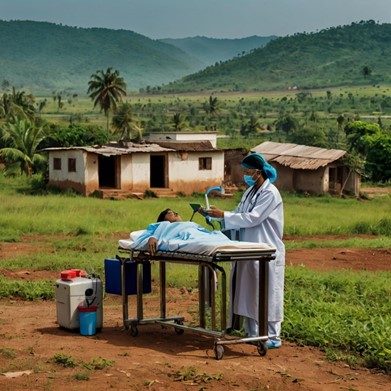
The implementation of point-of-care PFT in rural India is not without difficulties. Healthcare professionals must be trained, equipment must be maintained as lung health matters, and these tests must be integrated into the larger healthcare system. But these difficulties are greatly outweighed by the possible advantages.
Looking ahead, the ongoing expansion of Point of Care PFT in rural India offers the prospect of a healthier population. It is evidence of the ability to innovate and adapt to satisfy the healthcare demands of various populations.
IOS Antlia, a Forced Oscillation Technique (FOT) based device to evaluate lung function. FOT is advanced technique to evaluate lung mechanics and was introduced in 1956 by A. DuBois et al. The emergence of devices such as the Antlia Pro marks a significant advancement in respiratory health management, particularly in rural India where access to healthcare is often limited.
Conclusion
In rural India, the advantages of point-of-care pulmonary function testing are evident and strong. FOT has the potential to transform respiratory care in impoverished areas by improving accessibility and empowering patients and healthcare providers alike. Point of Care PFT is a brilliant example of how focused interventions can result in appreciable gains in health outcomes as we continue to negotiate the challenges of rural healthcare. It's a step toward making sure that every breath matters, wherever one may reside, and closing the gap between healthcare in urban and rural areas.

